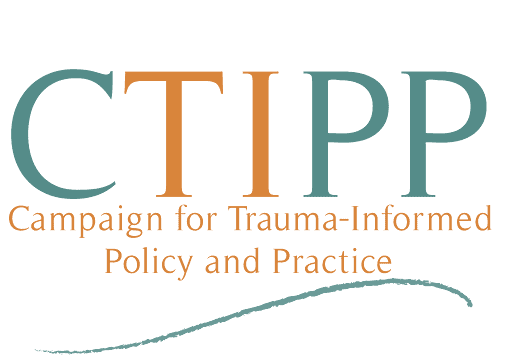Lina Pasquale is Executive Director of Crossnore’s Center for Trauma Resilient Communities and Board Chair for Campaign for Trauma-Informed Policy and Practice.
Trauma-informed care has emerged as a critical framework for addressing the impact of adversity and trauma on individuals, organizations, and communities. From schools to healthcare settings and from criminal justice systems to social services, there is a growing recognition of the need for trauma-informed practices.
Trauma-informed advocacy acknowledges that trauma is pervasive and affects individuals across all aspects of life. Whether stemming from childhood adversity, abuse, violence, natural disasters, or systemic oppression, trauma can have a lasting effect on a person’s life. Traditional approaches often fail to account for the complexity or the intersection of trauma exposure and adversity. They typically rely on generic approaches to complex circumstances. In contrast, trauma-informed care seeks to establish environments that are sensitive, responsive, empowering, and healing-centered. Advocating for trauma-informed care across all sectors is essential for our national well-being.
We heal together.
Responding to the Need
While the momentum for trauma-informed advocacy is promising, significant challenges still remain. These include overcoming resistance to change, addressing resource disparities, and ensuring widespread adoption of trauma-informed practices. However, each challenge presents an opportunity for collaboration, innovation, and collective action. By fostering partnerships among policymakers, practitioners, researchers, and community advocates, we can harness our collective wisdom to drive meaningful reform.

The Campaign for Trauma-Informed Policy and Practice (CTIPP) is at the forefront of driving impactful reform and advocating for a more trauma-informed society. CTIPP was founded in 2015 to tackle the national need for a more just and trauma-informed society. CTIPP works on addressing the underlying causes of the most critical challenges in the country. It does this through open and collaborative involvement across various sectors and systems. As CTIPP Board Chair, I am honored to carry on the legacy of Dr. Sandra Bloom, who held this position since the founding of the organization, and to advance CTIPP’s mission to:
“create a healthy, just, resilient, and trauma-informed society where all individuals, families, and communities have the social, political, cultural, economic, and spiritual opportunities and support necessary to thrive.”
The Answer to How is “Yes”
When I was asked to join CTIPP I carefully considered the request. I had to reflect on my motivation, evaluate my values alongside CTIPP’s values, and also navigate through self-doubt and my running tape of questions:
- Would my contributions make a difference?
- Could I really help bring about the change defined by CTIPP’s mission?
- How am I going to do this?
- Was my drop of water valuable enough for this national movement?
I admit I was unsure and nervous.
Trauma-informed care is important to me both personally and professionally. I’ve witnessed the positive change that emerges when individuals and communities are met with compassion and understanding rather than indifference or judgment. I have stood alongside individuals as they reclaim their voices, rebuild their lives, and reimagine their futures. I have reclaimed my own voice, rebuilt my own life, and am still envisioning what my future will bring. It is about advocating not only for the rights of others but also for their dignity and well-being. It’s also about advocating for my rights and for my own dignity and well-being. It is both the ‘me’ and ‘we’ intersecting, both as an individual and for the collective good of our communities.
Trauma-informed advocacy aligns with my values. It challenges systemic barriers and strives for inclusive practices that honor the unique experiences and needs of each individual. By promoting trauma-informed approaches I am building more compassionate and resilient communities. The ‘yes’ for me became ever more clear when I realized I was already an advocate-in-action and have been all along.
Say yes. The how will follow.
Advocates-in-Action
I am honored to serve as CTIPP’s Board Chair, and previously its Vice Chair, Board Director, and Advisor. I am also proud to represent Crossnore at CTIPP and our shared vision of preventing childhood adversity and advocating for systems-level change so that all individuals can thrive in healthy communities. CTIPP’s policy priorities include addressing social factors, promoting prevention and resilience, and prioritizing community involvement, systemic solutions, and funding methods. These priorities align with Crossnore’s Center for Trauma Resilient Communities and its vision of “trauma-responsive, resilient, and healing-centered communities.”

CTIPP has three main initiatives: Ideas Lab, Community Advocacy Network, and PressOn. In its brief history, CTIPP has made incredible strides in the trauma-informed movement. Trauma and Adverse Childhood Experiences (ACEs) were initially absent from Congressional appropriation bills. Now more than 30 initiatives have received funding to tackle trauma and ACEs. CTIPP’s National Trauma Campaign includes members from all 50 states, including staff and advocates from Crossnore.
Crossnore is making a difference alongside hundreds of other agencies and advocates across CTIPP’s national network of change-makers.
We are in this together.

Will you join me to advance the national trauma-informed movement? And do so by honoring the collective wisdom and protecting it through bold leadership and action? Are you ready to be an advocate-in-action?
I bet you already are one.
Together, We Can
As an essential part of trauma-informed advocacy, your role matters. Whether you’re a policymaker, a direct service provider, a teacher, a parent, an elder, or an advocate amplifying the voices of the collective.
My drop of water matters and so does yours.

Here are some immediate next steps you can take to activate your trauma-informed national advocacy.
A call to action.
- Urge Congress to support the RISE from Trauma Act
- Join CTIPP’s Community Advocacy Network today and encourage someone to join with you.
- Urge Congress to support the Community Mental Wellness and Resilience Act
- Consider reading: Real Change: Mindfulness to Heal Ourselves and the World by Sharon Salzberg.
By staying informed, advocating for policy change, and creating environments that prioritize safety and healing, we can collectively build a more resilient and compassionate society. In doing so, we make trauma-informed advocacy a national priority.



